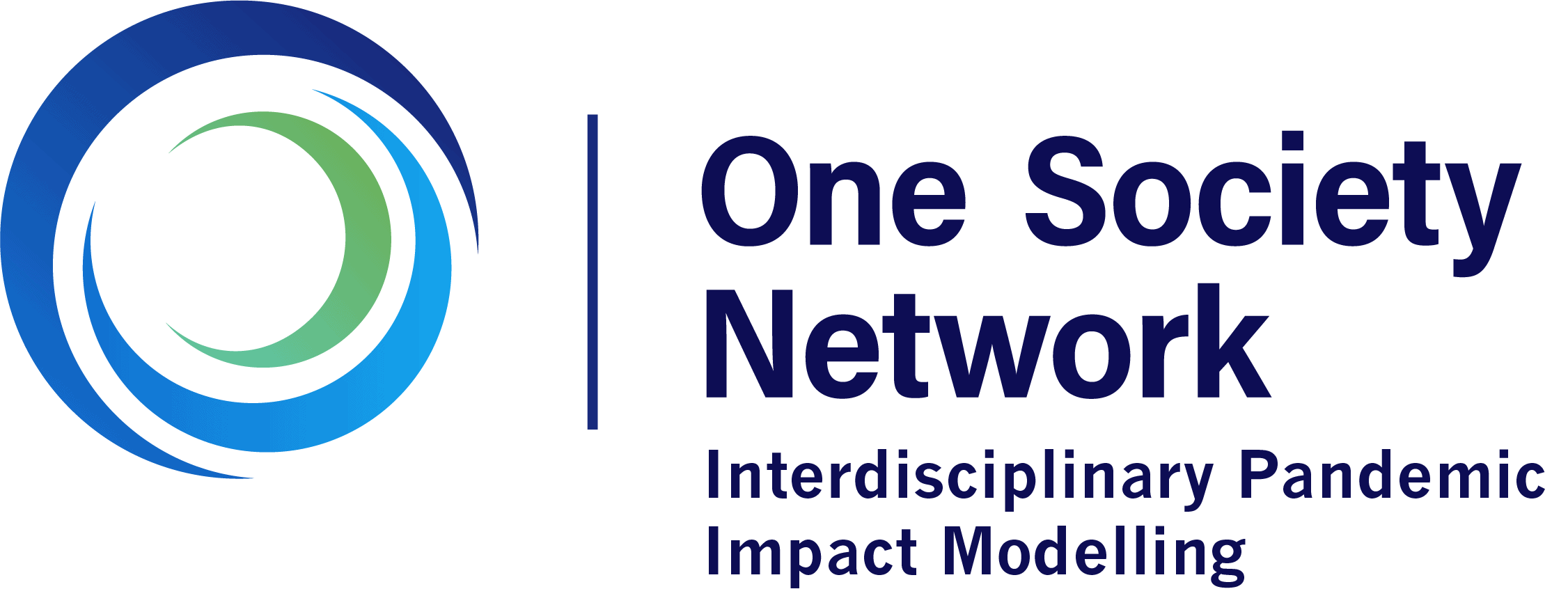|
![]()
| OSN Network1 #701007 The One Society Network (OSN), led by Dr. Christopher McCabe at the University of Alberta, will include developing modelling for evaluating alternative policy responses during pandemics for all sectors of the economy and aspects of society, including marginalised groups. They will also be collaborating on multi-disciplinary training programs for skills development to support public policy making in future pandemics. [1] | 
Particular consideration will also be paid to specific factors facing Indigenous populations, including the remoteness of many Indigenous communities, and how historical events have contributed to increased risk factors associated with the spread of COVID-19 and the severity of outcomes among Indigenous populations. These considerations will be made in consultation with Indigenous community members, and research results will be disseminated to communities in a timely fashion. This process will ensure that Indigenous communities have a voice in the direction of the research and are able to access and use the results of any analyses in a way that best conforms with the needs of the communities. This part of the Network will build upon previous work done by Dr. Maggie Jones in the area of Indigenous economic development (see https://maggiejones.ca/ for more information). If you are an Indigenous group interested in getting involved with the One Society Network, please contact us. |
+Citations (2) - CitationsAdd new citationList by: CiterankMapLink[1] NSERC Funding Decisions: Emerging Infectious Diseases Modelling Initiative
Author: NSERC
Cited by: David Price 9:54 AM 16 September 2022 GMT
Citerank: (9) 679703EIDM?The Emerging Infectious Diseases Modelling Initiative (EIDM) – by the Public Health Agency of Canada and NSERC – aims to establish multi-disciplinary network(s) of specialists across the country in modelling infectious diseases to be applied to public needs associated with emerging infectious diseases and pandemics such as COVID-19. [1]7F1CEB7, 679712CANMOD – PeopleCANMOD is a national network, with members located across the country and associated with a broader Emerging Infectious Disease Modelling (EIDM) initiative. We are a community of modellers, statisticians, epidemiologists, public health decision-makers, and those implementing and delivering interventions.10019D3ABAB, 679714OMNI – PeopleOur English and French acronyms of the network, One Health Modelling Network for Emerging Infections (OMNI)/RÉseau UNe seule santé sur la modélisation des InfectionS (RÉUNIS) symbolize universality and the bringing together of people and ideas. This is precisely what we have done, having amassed an amazing network of interdisciplinary people with a commitment to a One Health approach to stopping emerging infectious diseases (EIDs) at all levels.10019D3ABAB, 679715OSN – PeopleThe One Society Network (OSN), led by Dr. Christopher McCabe at the University of Alberta, will include developing modelling for evaluating alternative policy responses during pandemics for all sectors of the economy and aspects of society, including marginalised groups. They will also be collaborating on multi-disciplinary training programs for skills development to support public policy making in future pandemics. [1]10019D3ABAB, 679716SMMEID – PeopleStatistical Methods for Managing Emerging Infectious Diseases (SMMEID), led by Dr. Patrick Brown at the University of Toronto, will develop methods and tools to get an accurate picture of the nature and extent of infectious disease transmission in the population, relying on real-world data from administrative sources and surveys. They are seeking to augment Canada's capacity to respond to emerging infectious diseases. [1]10019D3ABAB, 701002OMNIThe One Health Modelling Network for Emerging Infections (OMNI), led by Dr. Huaiping Zhu at York University, will identify gaps that can be used to prioritize more targeted surveillance or data collection and then use those data to refine models. This work will contribute to an improved understanding of the conditions that enable pathogen spread and transmission and identify actions that can most effectively manage these conditions. [1]1002079B9B9, 701005CANMOD?CANadian Network for MODelling infectious Disease / Réseau CANadien de MODélisation des maladies infectieuses1002079B9B9, 701006MfPHMathematics for Public Health (MfPH), led by Dr. V. Kumar Murty, Director of the Fields Institute and Professor at the University of Toronto, will aim to bridge the gap between mathematical research and real public health issues. The team will seek to produce models that are effective, practical and reliable for applications to public health issues for COVID-19 as well as boost Canada’s future pandemic preparedness. [1]1002079B9B9, 701008SMMEIDThis project assembles the top biostatisticians in Canada working on infectious diseases, and joins them with epidemiologists developing novel methods for data collection during the COVID-19 pandemic. Our group is developing methods and tools to get an accurate picture of the nature and extent of infectious disease transmission in the population, relying on real-world data from administrative sources and surveys. [2]1002079B9B9 URL:
|
|
|